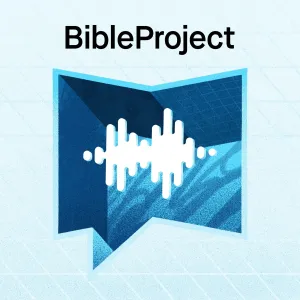
Giants and Justice – Deuteronomy E3
In this episode, we once again encounter the Nephilim, the evil demon-human hybrid beings we first met in Genesis 6. Now they resurface as giants inhabiting Canaan, the land Yahweh promised to Israel. Join Tim and Jon as they tackle the complex issue...

What Does Leviticus Teach Us About Jesus? – Leviticus Q+R
How do you clean a tabernacle? What does “laying of hands” represent? Is the scapegoat a hyperlink to Cain and Abel? How was it even possible for Israelites to follow the law? In this episode, Tim and Jon respond to your questions about the Leviticus...

The Way to True Life – Deuteronomy E2
In the first movement of Deuteronomy, two words appear more frequently than any others—listen and love. Why did Moses emphasize these two words in his farewell speech to Israel? In this episode, Tim and Jon explore what it looks like to be loyal to Y...

What’s the Point of Deuteronomy? – Deuteronomy E1
Have you ever wondered where the earliest sermons in the Bible are found? Moses’ final speech to Israel, found in Deuteronomy, is the first time we see what is essentially a modern sermon—a long speech meant to communicate God’s truth. Just as Israel...

Entering the Promised Land – Numbers E9
After years of wandering in the wilderness and what seems like way too many rebellions against Yahweh, Israel has finally arrived on the edge of the promised land. What could possibly go wrong now? And yet even here, two of Israel’s tribes rebel, rep...

Joshua: The New Adam and Moses – Numbers E8
As Moses’ death draws near, Yahweh selects Joshua to lead the people of Israel. What made Joshua uniquely qualified to lead? How does his leadership differ from Moses’? In this episode, join Tim and Jon as they discuss how the Hebrew Bible depicts Jo...

Five Women and Yahweh’s New Law – Numbers E7
In the third movement of Numbers, five sisters approach Moses with a legal case not covered in God’s laws: Without any brothers to inherit their father’s land, their family inheritance will be lost unless women are allowed to receive an inheritance t...

Why Couldn’t Moses Enter the Promised Land? – Numbers E6
So far in the second movement of Numbers, the leaders of the twelve tribes of Israel have rebelled against Yahweh, the people themselves have rebelled against Yahweh, and even the Levites have rebelled against Yahweh. In fact, Moses, Aaron, Joshua, a...

Yahweh’s Judgment and Mercy – Numbers E5
God chose the Levites to take care of the tabernacle, and within the tribe of Levi, he picked Aaron’s family to have the special duty of offering sacrifices and burning incense. In Numbers 16, a Levite named Korah and 250 Israelite leaders accuse Aar...

Twelve Spies and the Promised Land – Numbers E4
We’re looking at a story about God’s chosen ones facing a test with fruit trees in a beautiful garden—sounds like Genesis 3, right? Surprisingly, this is a story from Numbers 13-15, with another tree and another test. In this episode, Tim and Jon div...

There Isn’t a Law For That – Numbers E3
How do God’s people follow his will in situations where there are no explicit rules or laws given? At the conclusion of the third movement of Numbers, the Israelites don’t know how God wants them to respond to a situation. Join Tim and Jon as they ex...

What’s a Nazarite Vow? – Numbers E2
Confession of sins, strange water rituals, Nephilim, and Nazarite vows—Numbers 5 and 6 might feel like a confusing mix of laws, but the scroll’s author is cleverly reminding us of the Hebrew Bible melody we first encountered in Genesis 1-9. In this e...

What Made the Tribe of Levi Special? – Numbers E1
The scroll of Numbers can be difficult to make sense of without context, and there’s a reason for that. The scroll was never meant to be understood on its own. Numbers picks up where Leviticus leaves off and mirrors the scroll on the other side of Le...

The Law of the Blasphemer – Leviticus E9
Blasphemy, principles of restitution, jubilee, exile, and the mercy and justice of God––it’s all there in the final lines of the scroll of Leviticus. Join Tim and Jon as they talk about the great gift and responsibility of carrying Yahweh’s name and...

What Israel's Feasts Teach Us – Leviticus E8
Are there specific times humans can meet with God in special ways? For ancient Israel, the answer was yes. In this episode, join Tim and Jon as they explore the final movement of Leviticus, talk about the Sabbaths and festivals ancient Israelites cel...